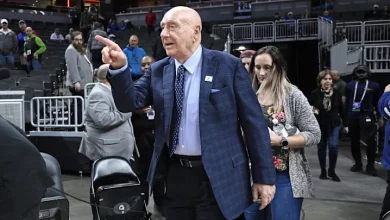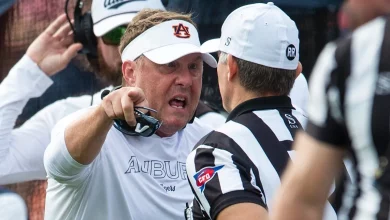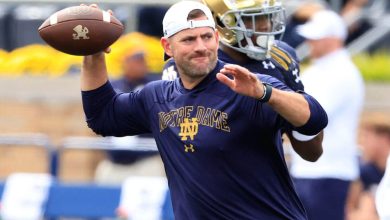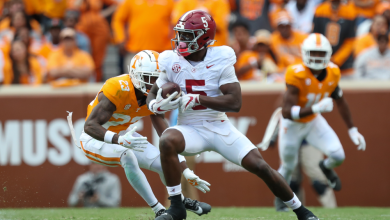Dissecting Georgia football driving offenses and UGAAA policy in Reckless
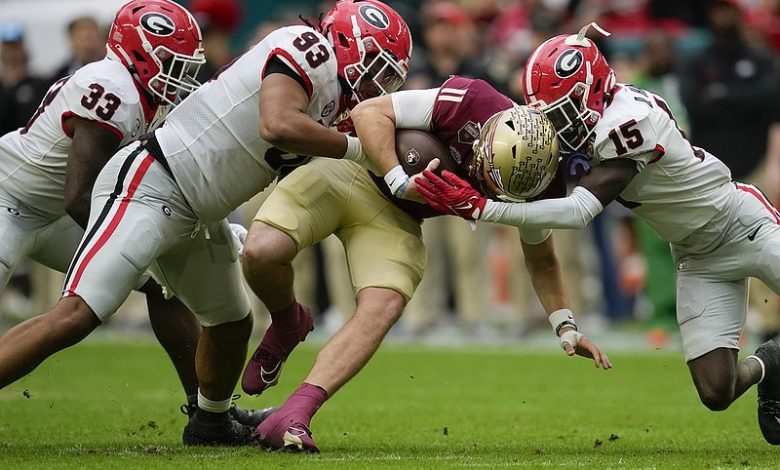
In recent years, the Georgia Bulldogs football program has been a dominant force in college football, with the team consistently contending for national championships and producing elite players. However, as with any high-profile program, there are elements of the story that are not so glamorous—most notably, the driving offenses and reckless driving incidents involving players. These issues have been increasingly highlighted, causing concern among fans, the university, and administrators alike. In response, the University of Georgia Athletic Association (UGAAA) has had to take a closer look at their policies surrounding player behavior, particularly in regard to driving violations.
The intertwining of Georgia football’s driving offenses and the UGAAA’s response to reckless behavior is a complex issue that reflects broader concerns about accountability, safety, and the image of college athletics. In this article, we will dissect the driving offenses and reckless incidents that have plagued the program, analyze the UGAAA’s policies and responses, and discuss how the university and its football program might move forward from these issues.
1. The History of Reckless Driving Incidents Among Georgia Football Players
Reckless driving and driving under the influence (DUI) offenses have become an increasingly troubling trend in the Georgia football program. While these issues are not unique to Georgia, the frequency and high-profile nature of these incidents involving Bulldog players have raised serious questions about the program’s culture, the responsibility of student-athletes, and the oversight of the university.
Over the past few seasons, several Georgia football players have found themselves in legal trouble related to driving. Some incidents have been relatively minor, but others have been severe enough to garner public attention and criticism. For example:
- Fatal Crash Involving Devin Willock and Chandler LeCroy (January 2023): This incident involved two members of the Georgia football program—Devin Willock, a 20-year-old offensive lineman, and Chandler LeCroy, a recruiting staff member—who were killed in a tragic high-speed crash. The car, driven by LeCroy, was going over 100 miles per hour, and both Willock and LeCroy lost their lives in the accident. Authorities later revealed that the crash occurred while racing with another vehicle, which sparked a nationwide conversation about the risks of reckless driving, particularly among young athletes with significant social and financial pressures.
- Jalen Carter’s Role in Reckless Driving Investigation: Jalen Carter, a star defensive lineman for Georgia, was implicated in the investigation into the crash. While he was not directly involved in the fatal accident, reports indicated that Carter had been racing his vehicle alongside LeCroy’s before the crash. Although Carter was not charged with causing the accident, the situation highlighted ongoing concerns about the behavior of Georgia’s players behind the wheel.
- Other Driving Offenses: Beyond the tragic incident, several other Georgia players have been arrested or cited for reckless driving or speeding-related offenses in recent years. For example, Zamir White, a former running back for Georgia, was cited for speeding multiple times during his time in Athens. Similarly, multiple reports indicated instances of players driving at excessively high speeds, even when not involved in accidents.
These incidents have contributed to the growing concern regarding the relationship between high-level college athletes and reckless driving. There are several factors that play into this troubling trend, including the fast-paced and high-pressure lifestyle of student-athletes, the culture of risk-taking in sports, and the lack of accountability within some athletic programs.
2. The Role of the UGAAA and the University’s Policy on Player Conduct
The University of Georgia and the UGAAA (University of Georgia Athletic Association) are tasked with maintaining a high standard of conduct for student-athletes, both on and off the field. The UGAAA’s mission is not only to promote athletic excellence but also to foster responsible and ethical behavior among its student-athletes. With the growing number of driving offenses in Georgia football, the question arises: what role should the UGAAA play in preventing reckless driving and ensuring player accountability?
Georgia’s policy on student-athlete conduct is fairly standard compared to other major programs, with an emphasis on responsible behavior both on and off the field. The UGAAA’s Code of Conduct outlines expectations for athletes in various areas, including academics, behavior, and social responsibility. However, while the policy includes provisions for discipline in cases of illegal activities or reckless behavior, the level of enforcement and consistency in applying penalties has come under scrutiny.
Current UGAAA Policies on Player Behavior and Driving Offenses
- Disciplinary Actions for Reckless Driving: In the case of reckless driving offenses, the UGAAA does have a process for handling player discipline. This includes suspensions, team penalties, or other actions deemed appropriate by the athletic department. For example, players who are caught driving recklessly may be benched for a certain number of games or face other restrictions as determined by the team’s leadership.
- Coaching Staff’s Responsibility: Head Coach Kirby Smart and his staff are also responsible for monitoring and disciplining players when it comes to off-field behavior. Smart has been known for holding his players to high standards both on and off the field, but his response to driving offenses has often been viewed as inconsistent. For instance, while some players have been suspended or given additional duties after being caught driving recklessly, other players have faced less severe consequences. This discrepancy has raised questions about how the program handles such behavior and whether the penalties are truly reflective of the seriousness of the offenses.
- Educational Programs and Preventative Measures: The UGAAA has also implemented educational programs aimed at preventing reckless driving among student-athletes. These programs focus on responsible decision-making, the dangers of speeding, and the importance of safe driving practices. Additionally, Georgia has partnered with local law enforcement to provide athletes with seminars and resources designed to help them navigate the challenges of being a high-profile student-athlete. However, the effectiveness of these programs has been questioned, particularly given the repeated nature of the incidents.
NIL and the Pressure on Players
One key factor that may be contributing to reckless behavior among Georgia football players is the growing pressure on athletes in the age of Name, Image, and Likeness (NIL). Since the NCAA allowed athletes to profit from their name, image, and likeness, Georgia football players have had unprecedented access to lucrative endorsement deals, sponsorships, and media attention. While this financial freedom offers many benefits, it also comes with added pressures that can influence behavior.
For some student-athletes, the combination of newfound wealth, fame, and expectations can lead to poor decision-making, including risky driving behavior. Some players may feel invincible or entitled due to their status, and the allure of high-speed racing and reckless driving may seem like a way to exert control over their lives. The lack of oversight or regulation in this space may further enable this behavior.
3. The Public Relations Impact: The Image of Georgia Football
For a program as prestigious as Georgia, incidents of reckless driving among its players have a significant impact on public perception. College football programs are often judged not only by their success on the field but also by the behavior of their athletes off the field. When players engage in reckless behavior, especially when it leads to tragic outcomes, it can tarnish the program’s image and reputation.
In the aftermath of the fatal crash involving Devin Willock and Chandler LeCroy, Georgia football’s public relations team had to respond to the incident with careful messaging. While the school expressed deep sympathy for the families of the victims and pledged to improve player education on safe driving, the optics of the situation remained difficult. The tragedy brought to light how the program had not fully addressed the dangers of reckless driving, even as such incidents continued to occur.
Moreover, incidents like these put added pressure on Georgia’s leadership to address cultural issues within the program. If players are repeatedly engaging in reckless behavior, it raises concerns about the overall climate of the football program and whether there is enough accountability in place to prevent such incidents.
4. UGAAA’s Response: Policy Changes and Moving Forward
In response to these ongoing issues, the UGAAA has begun taking a more proactive approach to tackling reckless driving and improving player behavior. Several policy changes have been proposed, some of which include:
- Stricter Consequences for Reckless Behavior: Going forward, the UGAAA may introduce more stringent disciplinary measures for players who are caught driving recklessly. This could include longer suspensions, community service obligations, or mandatory participation in driving safety courses.
- Increased Collaboration with Law Enforcement: The UGAAA may further collaborate with local law enforcement to ensure that athletes are held accountable for their actions. This could include more direct involvement in player training on the legal consequences of reckless driving, as well as more direct enforcement of traffic laws.
- Mentorship and Support Systems: Another potential shift is the expansion of mentorship programs that provide guidance and support to players as they navigate their lives as student-athletes. This could include pairing players with former athletes or mentors who have experienced similar pressures, helping them to make better decisions off the field.
- Expansion of NIL Education and Accountability: The increasing influence of NIL on college athletes may require the UGAAA to adapt its policies to ensure that athletes fully understand the impact of their newfound financial freedom. This could involve additional education on financial responsibility and the personal consequences of their actions—both on and off the field.
5. Looking Ahead: The Importance of a Cultural Shift
Ultimately, the key to addressing Georgia’s driving offenses and reckless behavior lies in fostering a cultural shift within the football program. While the UGAAA can implement policies and consequences, real change will only come when the athletes themselves recognize the importance of personal responsibility and accountability.
To achieve this shift, the leadership at Georgia—coaches, administrators, and former players—must work together to promote a message of safety, respect, and maturity. Only by creating an environment where players
prioritize their futures both on and off the field can the program move beyond the reckless driving incidents that have overshadowed its success.
For Georgia football, the next step is clear: the focus must shift toward not just producing elite athletes, but producing responsible individuals who understand the consequences of their actions and the responsibility that comes with being a high-profile athlete in a major college football program. If the Bulldogs can make this cultural shift, they will not only ensure a safer future for their players but also strengthen the foundation of their program for years to come.



